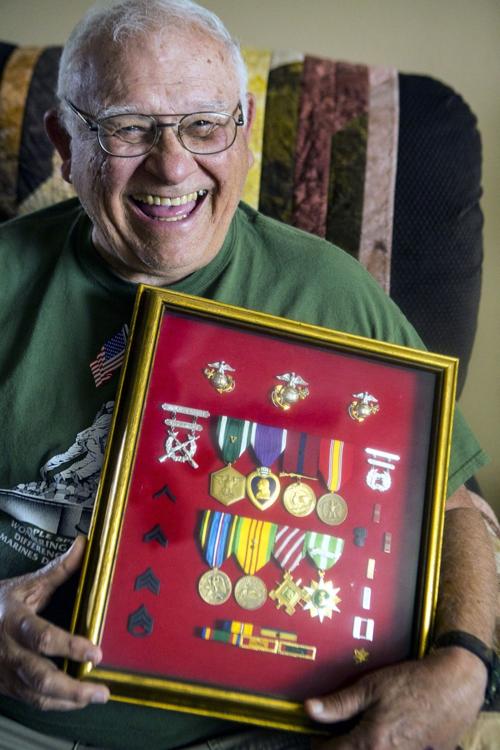It only took about a month of college for John Lloyd Rhodes to learn academic life wasn’t for him.
“I went to UA because I wanted to play football,” Rhodes, 79, said. “I found out you had to read and study, so I joined the Marine Corps.”
That started a nearly 20-year journey for the native Tucsonan, who went on to serve in Japan, Okinawa and Vietnam, among many stateside assignments.
Rhodes initially trained as a ham-radio operator. That assignment took him to Georgia, San Diego and Washington, D.C.
Then war broke out, and Rhodes was off to Vietnam as part of a military police battalion in charge of security at the Da Nang Air Base.
Despite the war raging throughout much of the county, Rhodes said times in Da Nang were relatively quiet. After all, it was the place where many American troops took their rest-and-recreation breaks from the war.
But there were a few close calls.
Like the day when Rhodes was making a cassette recording for his wife Theresa back home and North Vietnamese fighters launched an attack on the base.
“I made the mistake of leaving the tape recorder on while we were under attack,” he said with a laugh.
What’s more, he sent it to his wife.
“I didn’t care for that,” Theresa said.
Things got more dangerous for Rhodes in the second half of his first deployment when he was reassigned to the Second Battalion, 26th Marines, or the “Nomads,” as he said they were known then.
There he participated in 13 major operations over six months all across the country.
“They say your first couple weeks and your last are the most dangerous,” he said, and that proved to be true in his case.
Of the 1,000 men in the battalion, 324 were wounded and 33 killed in action.
Rhodes was one of those injured when a mortar round exploded near him, sending shrapnel into his leg.
He downplays the injury, saying he got stitched up and sent on his way. The Department of Defense thought differently, however, awarding him the Purple Heart for his service.
Rhodes left Vietnam shortly after the incident for an assignment in San Francisco.
It was quite a time to be in the City by the Bay — 1967 and the height of the counterculture and antiwar movements.
Rhodes said his time in San Francisco left him discouraged, as the base where he worked became the frequent target of domestic assaults. So common were the incidents of people shooting or hurling projectiles at the base that officials had to install bulletproof glass on the guard gate.
“I felt safer in Vietnam,” Rhodes joked.
He returned to the war-torn country for a second tour. After a safe return stateside, he took a job with the U.S. Marines Inspector General’s Office.
That job took him to Marine facilities all over the world.
In a fortuitous twist, Rhodes’ final assignment before his retirement from the Marines was back home in Tucson.
“The last thing I did was inspect the reserve unit I started out in,” he said.
Rhodes left the Marines in 1974. He earned a degree in agriculture from the University of Arizona, and later worked as a real estate appraiser until he retired in 2007.





